Fluency News #12

Hello, everyone!
Sejam bem-vindos e bem-vindas a mais um episódio da nossa nova série de podcasts, o Fluency News! Aqui, você vai treinar a sua escuta e ficar por dentro do que está acontecendo no mundo, sempre com as três principais notícias da semana, tudo em inglês! Ao longo do episódio, nós também adicionamos explicações em português das coisas que achamos que precisam de mais atenção, assim você não perde nenhum detalhe!
No episódio desta semana, falamos sobre a operação Autumn Hope em Ohio, nos Estados Unidos, a maior operação contra o tráfico humano na história do país. Nós também falamos sobre o posicionamento de Jair Bolsonaro a respeito das vacinas e possíveis curas para a Covid-19, e sobre o projeto da nova constituição no Chile. Por fim, nós falamos sobre como uma livraria de Nova Iorque pediu por ajuda, e a recebeu.
Nós temos uma nova página de dicas de inglês no Instagram, vá conferir! @fluencytvingles
Toda semana temos um novo episódio do Fluency News, não deixe de escutar! See you!
This episode was written by Liv Pond.
U.S. Marshals find 45 missing children in operation “Autumn Hope” https://www.cbsnews.com/news/us-marshals-recover-45-missing-children-operation-autumn-hope/
https://www.whio.com/news/local/ohio-ag-109-survivors-rescued-177-arrests-largest-anti-human-trafficking-operation-ohio/D7TFNSNTH5E63MEUZFYC4H2ABA/
‘An End to the Chapter of Dictatorship’: Chileans Vote to Draft a New Constitution https://www.nytimes.com/2020/10/25/world/americas/chile-constitution-plebiscite.html
https://www.theguardian.com/world/2020/oct/26/chile-vote-scrap-pinochet-constitution
https://www.aljazeera.com/program/inside-story/2020/10/27/a-new-era-for-chile/
https://www.reuters.com/article/us-chile-constitution/chile-embarks-on-path-to-drafting-new-constitution-after-referendum-idUSKBN27B1WP
Brazil’s Bolsonaro says cure, not vaccine, way out of coronavirus crisis https://www.reuters.com/article/us-health-coronavirus-brazil-bolsonaro/brazils-bolsonaro-says-cure-not-vaccine-way-out-of-coronavirus-crisis-idUSKBN27B23G
https://www.reuters.com/article/us-health-coronavirus-brazil-sputnik/second-brazilian-company-to-produce-russias-sputnik-v-covid-19-vaccine-idUSKBN2782VS
https://www.reuters.com/article/us-health-coronavirus-brazil/brazil-institute-to-import-chinese-covid-19-vaccine-rejected-by-bolsonaro-idUSKBN2782V6
https://www.bbc.com/news/world-latin-america-54634518
https://www.bbc.com/news/world-latin-america-54619730
The Strand Calls for Help, and Book Lovers Answer https://www.nytimes.com/2020/10/26/books/the-strand-bookstore-nyc.html
https://www.washingtonpost.com/road-to-recovery/2020/10/26/strand-bookstore-new-york-coronavirus/
Script
What is up, everyone! Welcome back to Fluency Academy’s Fluency News, the podcast series that keeps you an informed citizen of the world while you train and improve your listening skills. I’m Scott Lowe and I’m thrilled to have you with me.
We’ll showcase three of the most important or controversial stories of the week, and we’ll talk after each story, giving you snippets of explanations in Portuguese, to make sure that you understand everything about what you listened to. I think that’s pretty cool. And you can find the sources to all of our stories in the description, and a ton of free content at fluency.io
Well, let’s jump right in, what do you say? Our first story today comes from Ohio, in the US, where law enforcers arrested over 170 people in an anti-trafficking operation.
Ohio Attorney General Dave Yost said 50 law enforcement agencies across the state led an operation that has resulted in the rescue of more than 100 human trafficking survivors and 177 arrests. Yost said the operation, called Operation Autumn Hope, is believed to be the largest anti-human trafficking operation in the state’s history. The Attorney General described human trafficking as “modern day slavery.”
“The success of Operation Autumn Hope is measured not only in the number of arrests but in the lives that were rescued from this evil,” Yost said. “Every agency on this team looks for the day when no person is bought and sold in Ohio. Don’t buy sex in Ohio!” The effort was carried out in various parts of the state and had four priorities: rescuing victims of human trafficking and referring them to social services, recovering missing and exploited children, catching those seeking to have sex with a minor and arresting male johns seeking to buy sex. The sting was part of a multi-jurisdictional operation, which included U.S. Marshals, Dayton Police, the FBI and other law enforcement agencies across the state. During the operation, the Central Ohio Human Trafficking Task Force, Columbus PACT Unit and the Cuyahoga County Human Trafficking Task Force rescued 109 human trafficking victims and referred them to social services, the Attorney General’s Office said. Across southern Ohio, 76 missing and exploited children cases were cleared, including 45 by physical recovery by the U.S. Marshal’s Service.
“My thanks to all personnel who have stepped up for this operation,” said Peter C. Tobin, U.S. Marshal for the Southern District of Ohio. “These are the same personnel who hunt down violent fugitives every day. I’m incredibly proud of them and pleased that they were able to apply those same skills to finding missing children. I know Operation Autumn Hope has made a difference in a lot of young lives.” In Central Ohio alone, the sting resulted in 50 arrests being made in just three days, investigators said. Guns also were recovered. Yost said human trafficking is not just limited to urban areas and said Ohio’s status as the “crossroads of America” plays a role as well.
“We have a lot of home-grown human trafficking too,” Yost said. “It operates in the shadows.” Last month, USMS announced that 25 missing and endangered children between the ages of 13 and 18 were recovered in a 20-day mission called “Operation Safety Net” in Ohio. And less than a week later, USMS announced eight missing children were rescued in a five-day rescue operation in the Indianapolis area and one person was arrested on charges including parental kidnapping.In August, USMS announced that 39 missing children had been recovered in Georgia over a two-week mission known as “Operation Not Forgotten.” The operation led to the rescue of 26 children and the safe location of 13 others.
Você sabe qual é a diferença entre “which”, “who” e “that”, quando estamos explicando alguma coisa? Essas palavras podem ser usadas para fazer referência a algo que já foi dito, para evitar repetição. Nesse caso, a diferença entre elas dependerá se estamos falando de uma coisa ou de uma pessoa. “That” e “which” são utilizados para nos referirmos a coisas e “who”, a pessoas. Nessa história, nós temos exemplos com “which” e com “who”. Eles são “The sting was part of a multi-jurisdictional operation, WHICH included the U.S Marshals” e “These are the same personnel WHO hunt down violent…”.Alright, that’s great! It’s always good to hear stories about police out there, saving lives, making a positive difference.
Our second story this week comes from Brazil! You asked for it, and we’re delivering it! Today we’re going to talk about Bolsonaro’s positioning around the vaccines and possible cures for Covid-19. Brazil’s Jair Bolsonaro said on Monday it would be easier and cheaper to invest in a cure for Covid-19 rather than a vaccine, in a clear sign the president is increasingly positioning himself against inoculation programs.
“I’ll give my personal opinion: Isn’t it cheaper and easier to invest in a cure rather than a vaccine?” Bolsonaro told supporters outside the presidential palace in Brasilia. Bolsonaro, who caught and recovered from Covid-19 in July, has repeatedly downplayed the gravity of the virus and continues to promote the antimalarial chloroquine as a cure despite mounting evidence it doesn’t work. In Brazil, more than 150,000 people have died due to COVID-19, the world’s second highest death toll behind the United States. Chloroquine was also heralded by U.S. President Donald Trump but has dropped far down the list of potential global treatments for the novel coronavirus as repeated scientific studies failed to find any significant evidence of its effectiveness.
“I’m an example, I took chloroquine, others took invermectin, others took Annita,” Bolsonaro said also referring to two broad-spectrum anti-parasite drugs. “Everything indicates that everyone that took one of these three alternatives early on was cured,” he added without providing any scientific evidence to support his statement. None of the drugs mentioned by Bolsonaro have been proven to work and none are authorized for the treatment of COVID-19 in Europe, for example. Bolsonaro’s comments come as a political battle heats up between the president and Joao Doria, the governor of Sao Paulo – Brazil’s most populous and economically advanced state.
Doria, who is widely expected to run against Bolsonaro in the 2022 presidential elections, has positioned his state to get early access to China’s Sinovac vaccine which he plans to roll out in a mass inoculation plan by mid-December. Bolsonaro last week said the federal government would not buy the Chinese vaccine, contradicting his own health minister who had said the drug would be part of the country’s immunization plan.
Come on, government, get your stuff together.
Agora há pouco eu disse que “none of the drugs mentioned HAVE BEEN PROVEN to work”. Esse have been proven é uma estrutura muito usada na voz passiva. A voz passiva é útil para alguns contextos nos quais o que realmente importa não é quem fez a ação do verbo, mas quem recebeu a ação. Quando falamos em voz ativa e voz passiva, estamos nos referindo à estrutura de frases, ou seja, à ordem das palavras. Frases na active voice (voz ativa) são aquelas em que o sujeito que pratica a ação está em evidência, já em frases na passive voice (voz passiva), o objeto que recebe a ação é que está em evidência. Aqui, significa que a eficácia dos medicamentos não foi comprovada, e é essa parte que é importante, não quem comprovou ou não a eficácia, entende?
What a mess, huh? If we expected the pandemic to bring out the best in people, I think we’re all a bit disappointed.
Now, let’s visit Brazil’s neighboring country, Chile.On Sunday, just over a year after massive protests swept the nation, Chileans voted to scrap the dictatorship-era constitution and write a new one — a process that could transform the politics of a country that has long been regarded as one of the most stable and prosperous in Latin America. With 100 percent of the ballots counted, voters approved the referendum in a landslide victory, and 78 percent voted in favor of a new Constitution.
“This plebiscite is not the end; it is the beginning of a path we should all undertake together,” President Sebastián Piñera said in an address from the presidential palace.
“Until now, the Constitution has divided us,” he added. “As of today, we should all cooperate to make the new Constitution become one home for all of us.”
Until the protests last year, the idea of a new Constitution “wasn’t on anyone’s agenda,” said Lucía Dammert, a political scientist and board member of the research center Espacio Público. “The fact we are now discussing a new Constitution is a victory of the social movement.” The vote, originally scheduled for April, was postponed as Chile went on lockdown during the pandemic. Now, with most of the capital, Santiago, and other areas gradually opening up, voter turnout was high. Thousands of people flocked to the Plaza Italia in Santiago to celebrate on Sunday night, chanting, dancing, waving flags and setting off fireworks. Demonstrators unfurled banners addressed to Pinochet, with messages like “Goodbye, General,” and “Erasing your legacy will be our legacy.” “Today, citizenship and democracy have prevailed, and peace has prevailed over violence,” Mr. Piñera said. “This is a victory for all Chileans.” On Sunday morning, Chileans turned out in droves to participate. Throughout the country, voters in masks ringed block after block in calm, orderly lines.
After transitioning to democracy in 1990, Chile’s market-friendly business environment, framed in part by the Constitution, attracted foreign investment. The country grew consistently and saw poverty go down. But this came at the cost of an acute concentration of wealth and growing inequality. Last year, the United Nations Economic Commission for Latin America estimated that nearly a quarter of total income goes to 1 percent of Chile’s population. To cover the high cost of living, Chileans are greatly indebted. The Central Bank found last year that on average nearly three-fourths of household income was used to pay debt. The public health care and education systems are in shambles, and meager pensions force most people of retirement age to continue working. Amalia Gómez, 66, barely gets by on a $125 monthly pension and picks up seamstress jobs to compensate. She and many others like her see a new Constitution as a path to better lives and a more equitable country for future generations.
“Why not, if we are a country rich in minerals, fish, agriculture?” she said. “Why can’t we use those resources to our benefit, for our education and health?” Sunday’s ballot asks voters whether they want a new Constitution, and who should draft it: a body of only newly elected representatives or a convention in which half of the delegates would be members of Congress. Voters overwhelmingly opted for a newly elected constitutional convention, without automatic inclusion of Congress members. Elections will be held in April to choose the delegates, among whom there must be gender parity. Political factions are still negotiating whether to reserve seats for Indigenous delegates. Chileans are now scheduled to vote in 2022 to approve or reject the Constitution the convention drafts.
A palavra “whether” significa “se”. E pode ser usada como um sinônimo da palavrinha “IF”. A diferença está na intenção da condição. Como assim, Scott? Normalmente, usamos “whether” entre duas opções, duas condições, e o IF pode ser usado com mais frequencia. O “whether” também é mais formal, então é mais usado no mundo dos negócios e em notícias,
And now, in some great news! When New York’s Strand bookstores asked for help, 25,000 online orders flooded in.
One of New York’s oldest bookstores pleaded for help from customers — and help poured in. Nancy Bass Wyden, owner of the Strand Bookstores, took to Facebook and Twitter on Friday to say the business was “unsustainable.” Sales had slumped 70 percent since 2019 because of the pandemic, and the company’s cash reserves were running low, she wrote. She asked patrons to “#savethestrand” with some early holiday shopping, noting that “for the first time in The Strand’s 93 year history, we need to mobilize the community to buy from us so we can keep our doors open until there is a vaccine.” The response was explosive: The store received more than 25,000 online orders over the weekend, causing the website to crash, Wyden told The Washington Post. It normally gets 300 orders a day.
One woman in the Bronx bought 197 books. A dozen customers asked Strand to design their home libraries. Wyden’s 12-year-old daughter came in to pack books for online orders. In-store, Strand made $170,550 in sales on Saturday and Sunday, Wyden said. By comparison, it lost $316,000 in September. “How can I not love my book community for helping like this?” she said in a phone interview. “I really don’t think that we’re just a bookstore. I think we’re a place of discovery and a community center. When I ask for help and they respond this fast, it’s so heartwarming.” She said in the interview that she hopes the store will survive through the end of the year, and then she’ll reevaluate its future. Independent booksellers have struggled through the pandemic, with one store folding each week on average, the American Booksellers Association told the New York Times. Meanwhile, their top online rival, Amazon, continues to record sales and profit. (Amazon founder and chief executive Jeff Bezos also owns The Washington Post.)
Local businesses of all types — restaurants, event venues, clothing shops and bookstores — have made increasingly public appeals to lawmakers for economic relief, but also to loyal customers to save community institutions from financial ruin. Founded in 1927 by Benjamin Bass, a Jewish Lithuanian immigrant, with $300 in cash and a $300 loan, Strand grew into one of the largest independent book houses in New York. It is one of the only surviving bookstores from Fourth Avenue’s famed “Book Row.” Fred Bass, the son of the founder, began working in the store at age 13, according to his New York Times obituary. Wyden, his daughter, worked at Strand through her childhood and officially became its owner in 2018. Wyden shut down Strand on March 16, as the coronavirus began to sweep through New York. It was impossible, she said, to keep any part of the business open, even for online shopping, without protective equipment for staff. She furloughed 188 of 217 employees, expecting to bring them back within weeks when health conditions improved.
“I talked to other bookstore owners and HR people and accountants, and I was just scrambling to find out what this means,” she said. “There was no — and there is no — end in sight for this pandemic. And we weren’t sure who to furlough and who not to furlough. We all thought we’d be back to normal in June.” Strand reopened on June 22 after accepting a Paycheck Protection Program loan of between $1 million and $2 million, and brought back 30 employees. Wyden said she overestimated a sales rebound. She laid off 12 workers weeks later. Meanwhile, she bought at least $115,000 of stock in Amazon. The investment was disclosed because her husband is Sen. Ron Wyden (D-Ore.). The stock purchases enraged workers and members of Strand’s union, who accused her of disguising the business’s finances.
“She’s saying, ‘There’s no money, things are tough,’ ” one worker told the Baffler magazine in September. “But no, she’s spending her own money on an enormous stock buying binge, including Amazon, who is our competitor, who she has spoken out about publicly.” Wyden said in an interview that Amazon was not a chief concern for Strand and that the loss of foot traffic because of the pandemic did far more harm. She said she bought the Amazon stock, along with holdings in other tech firms, to maintain her personal income. “I was a small-business owner, and everything got shut down with my income,” she said. “No website. No bookstores. I was just thinking that I should diversify my personal portfolio and invest in stocks that are performing. I have to keep my own resources going to keep the Strand going. Those are interconnected. We used up all the money that we put aside. “I saw there was an economic opportunity. The stocks were very, very low, and I picked stocks as a businessperson that I thought would thrive.”
At the store, however, business continued to struggle. Wyden had planned to spend 2020 building out Strand’s rare-book room into an event space. The store hosted more than 400 events in 2019. Now that source of revenue was gone. Only 10 percent of its 2019 business, she estimated, came from the Web. She banked on another sales bump in September with back-to-school shopping and the city starting to reopen. It didn’t happen. Needing a boost, she posted her letter to customers Friday morning. “As the 3rd generation owner,” she wrote, “I have tried to imagine what my dad and grandfather would do right now after they spent their entire lives — 6 days a week — working at the store. I don’t believe they would want me to give up without a fight and that’s why I’m writing you today.” “I not only feel right now the weight of my grandfather and my dad,” she said in an interview, “but I also feel the weight of the 48 [original] book sellers on Fourth Avenue.”
Como em todas notícias, algumas palavras chamam a atenção. Para expandir o seu vocabulário, é importante estar em contato diário com o idioma. Aqui nós temos algumas palavras que você pode não conhecer ainda. A palavra “furlough”, por exemplo, significa “licença”, no sentido de se ausentar. “Patrons” são os patronos, não de Harry Potter, e sim com o significado de clientes. A palavra “banked” significa “depositada”, mas nessa notícia, quando eu disse que “she banked on another sales bump”, esse banked significa que ela contava, dependia disso. “Thrive” pode significar florescer, crescer, ou, como aqui, pode significar “prosperar”.
Let’s hope that all small businesses and independent stores can pull through this pandemic. And that’s where we’re going to end today’s episode. As always, feel free to give us feedback and tell us what you think of this series. Don’t forget to check out fluency.io for more free content in five different languages. There’s a new episode of Fluency News every week, and I’ll be here waiting for you. Peace out.
Playlist
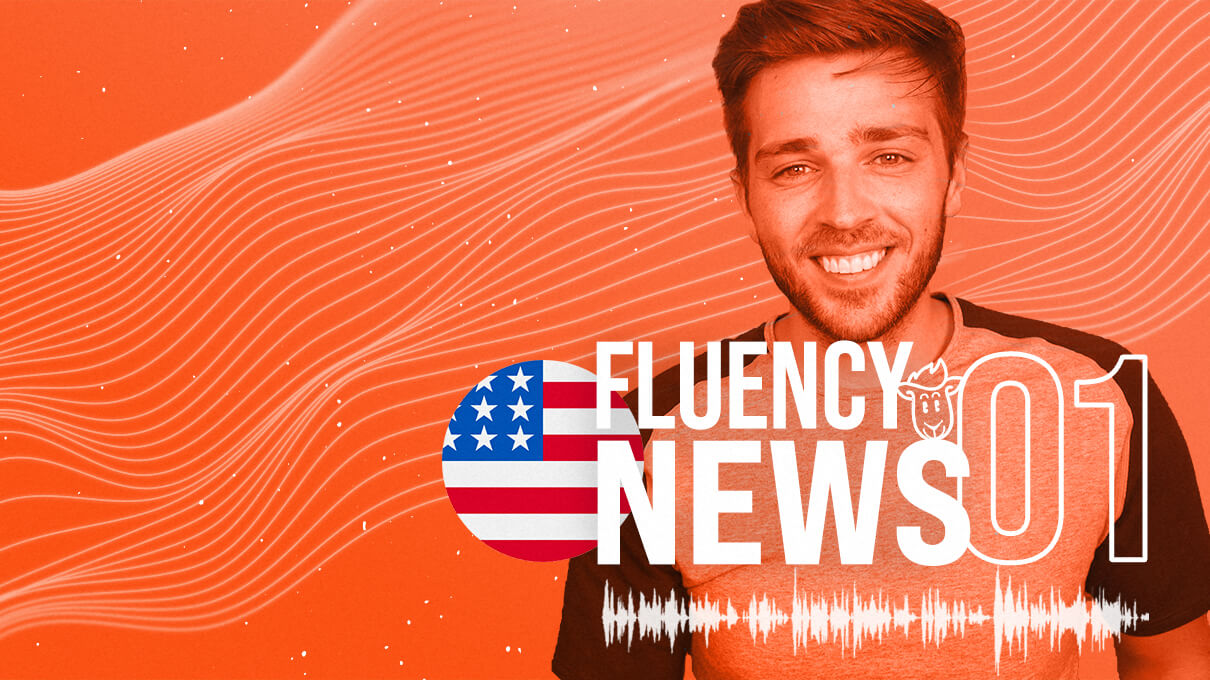
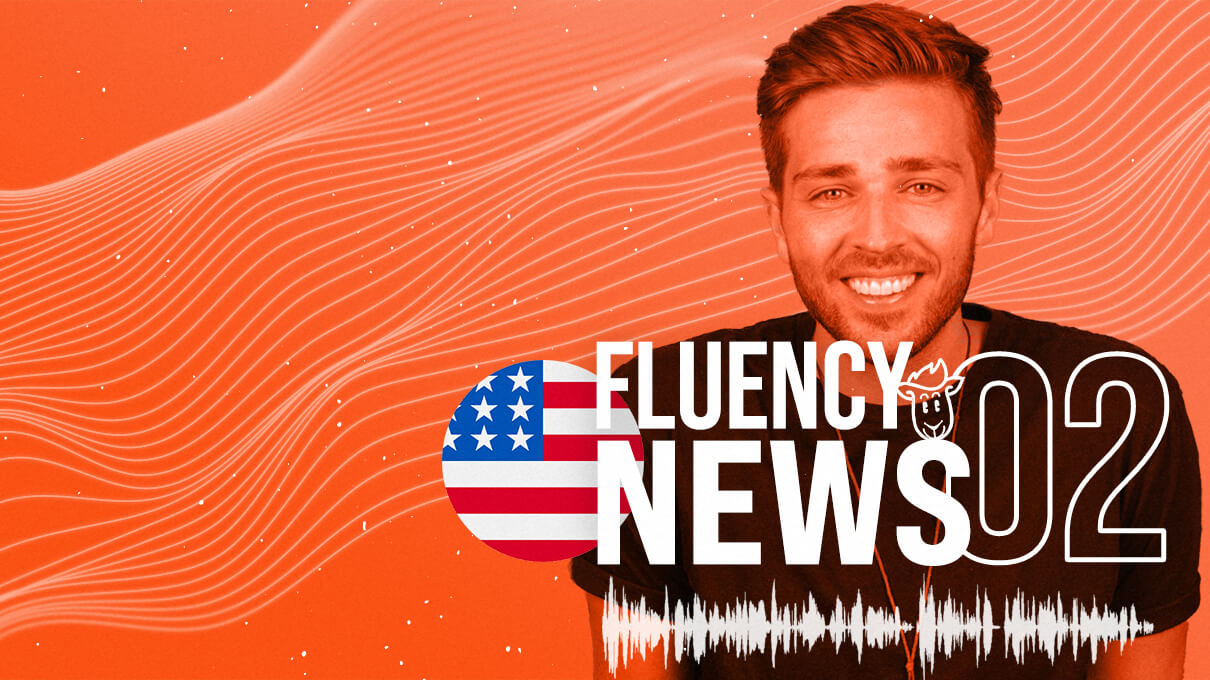
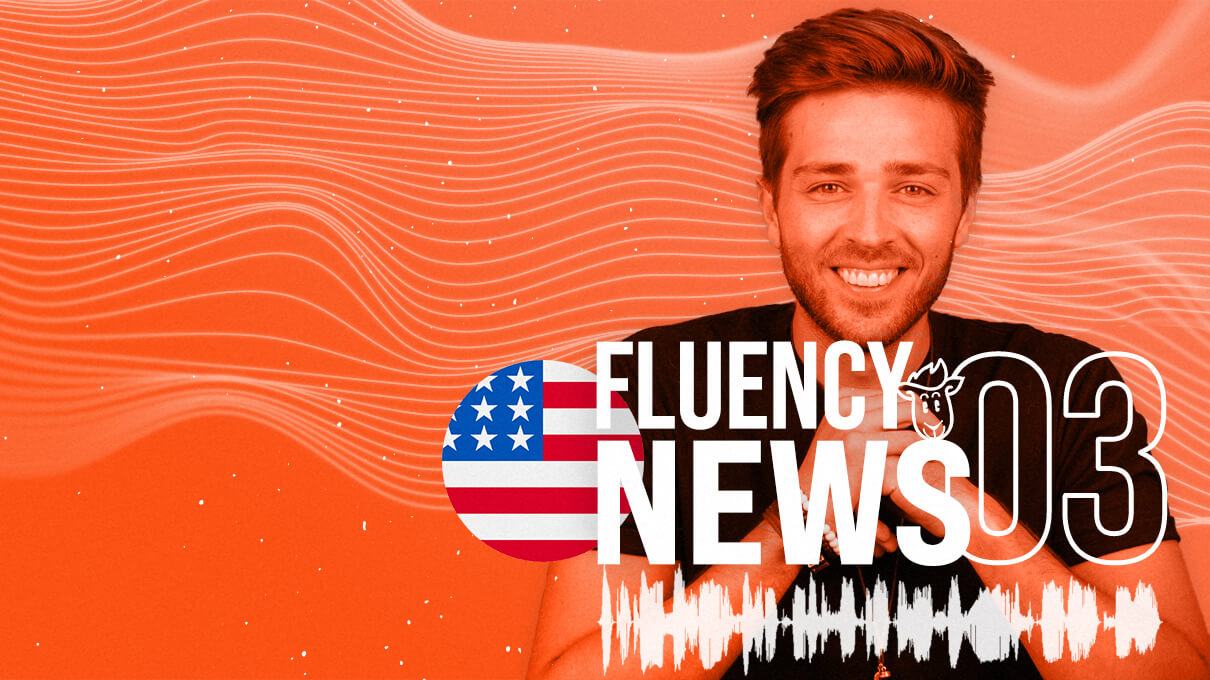
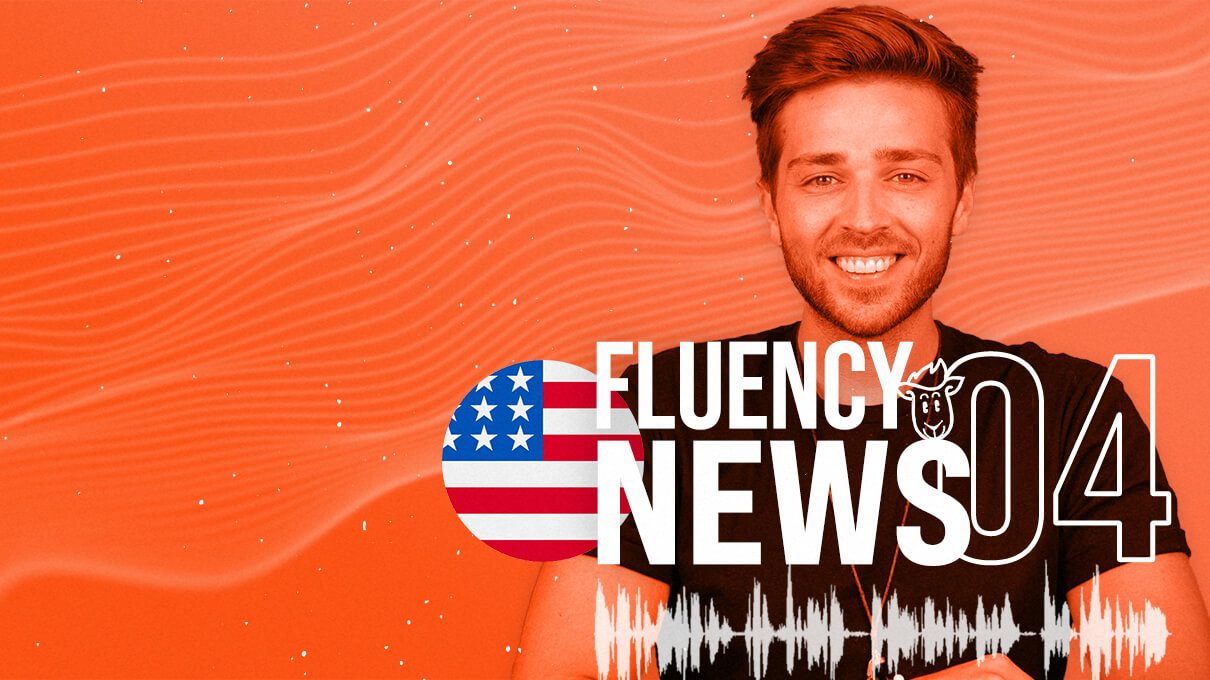


































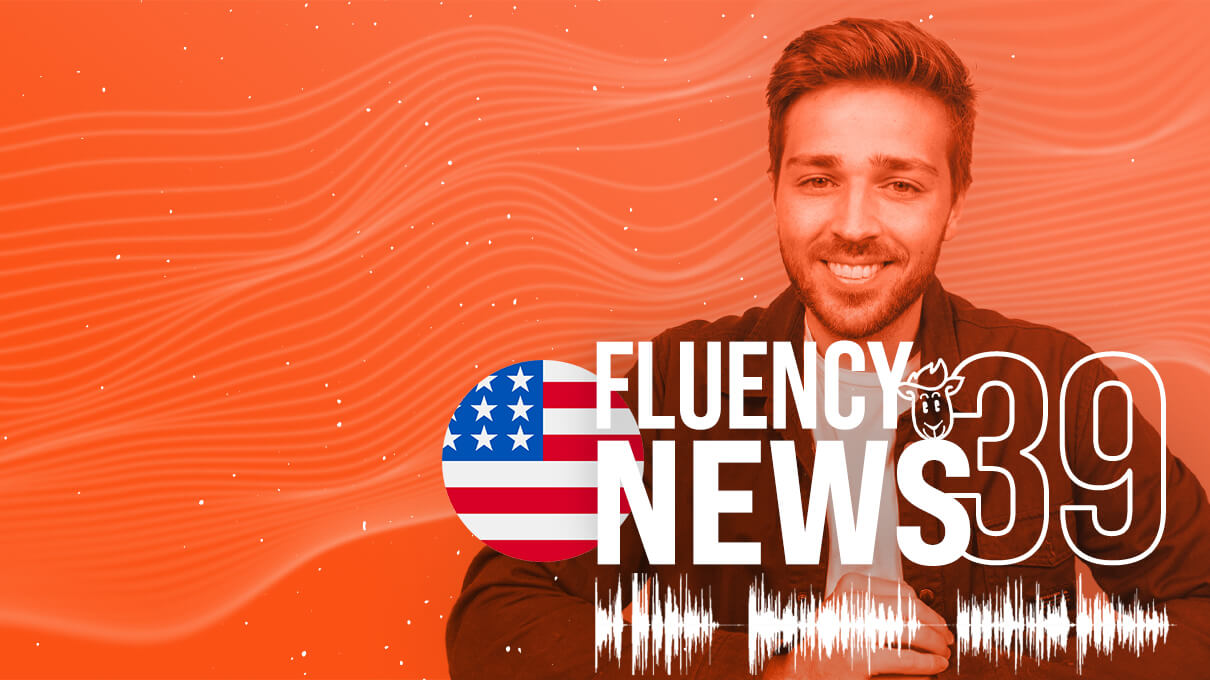






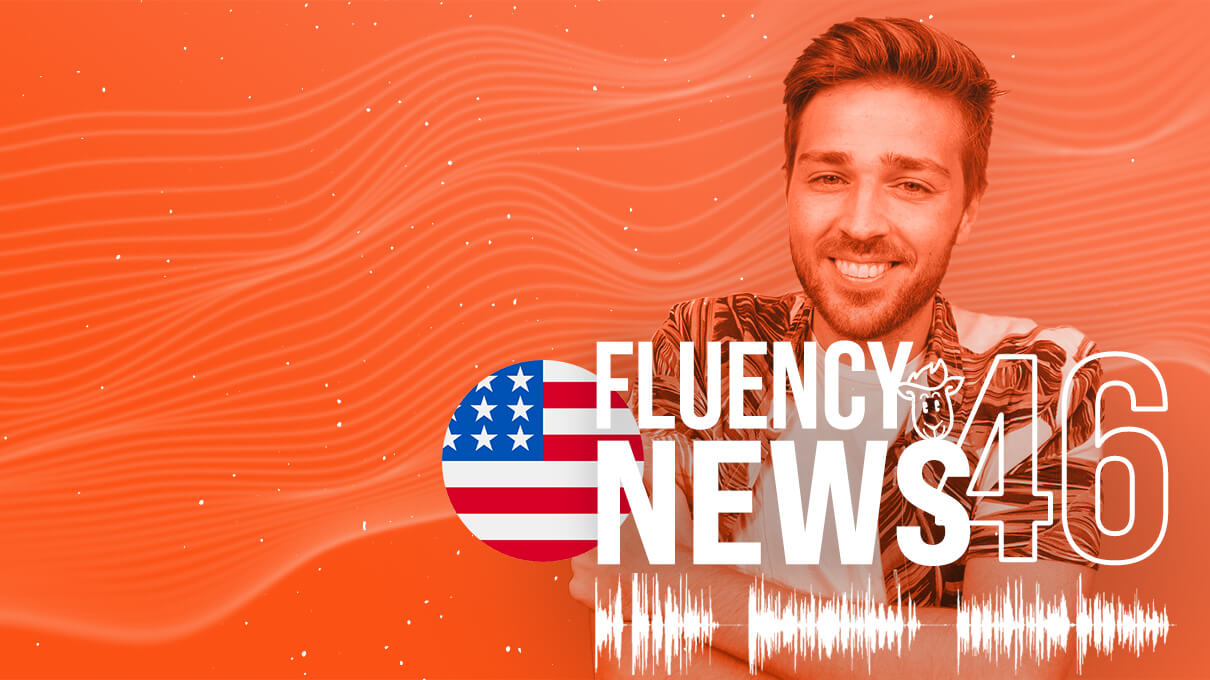




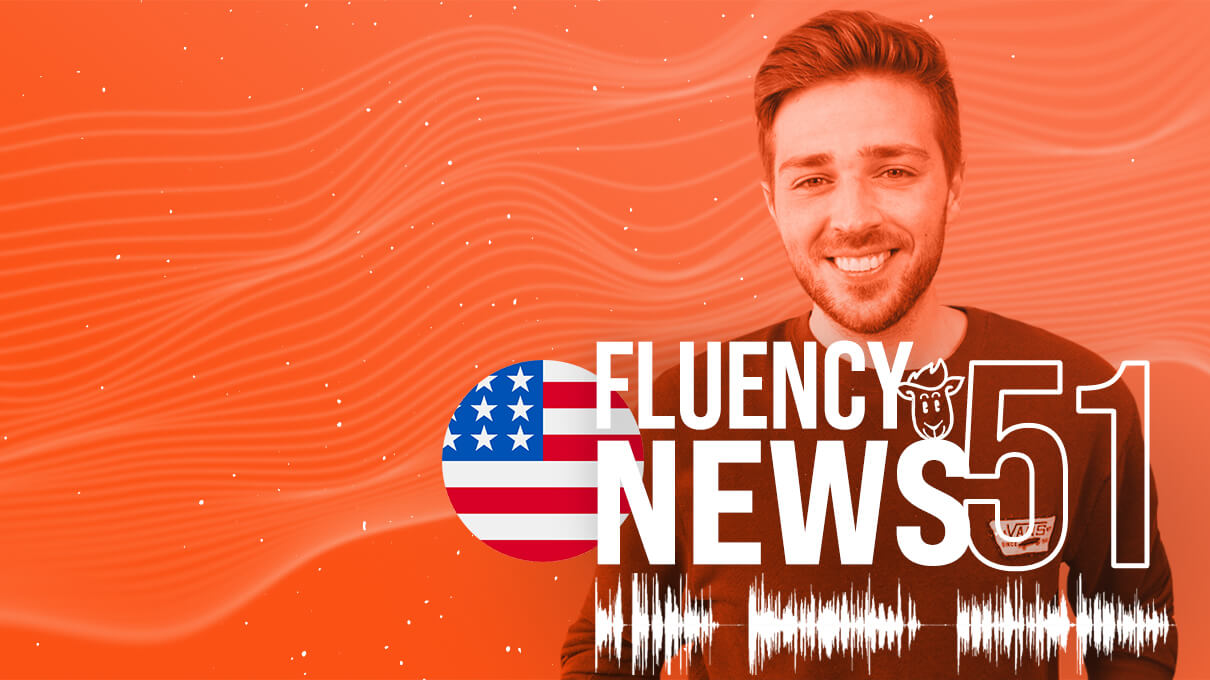









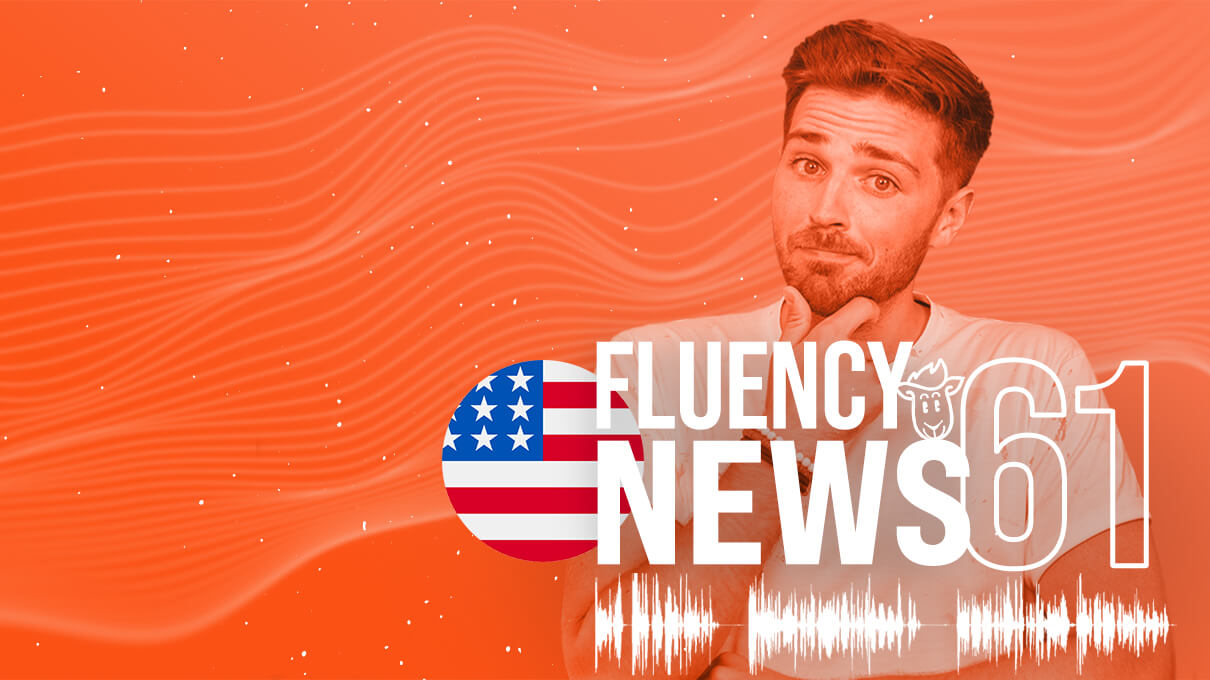







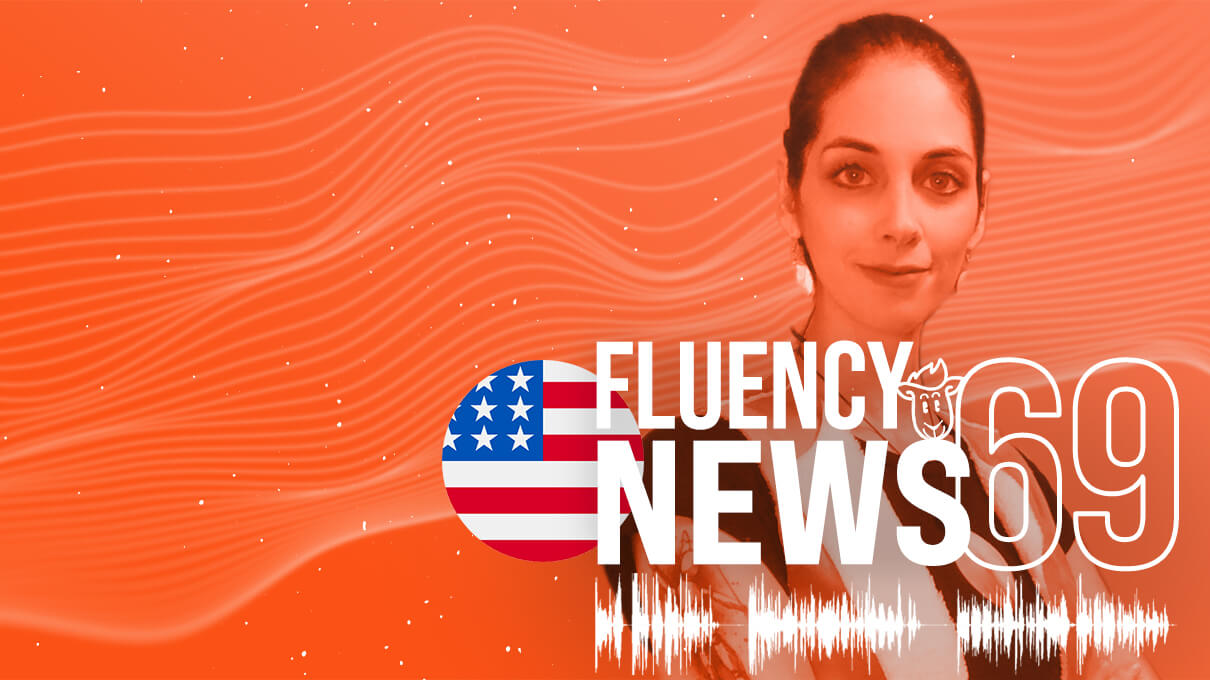


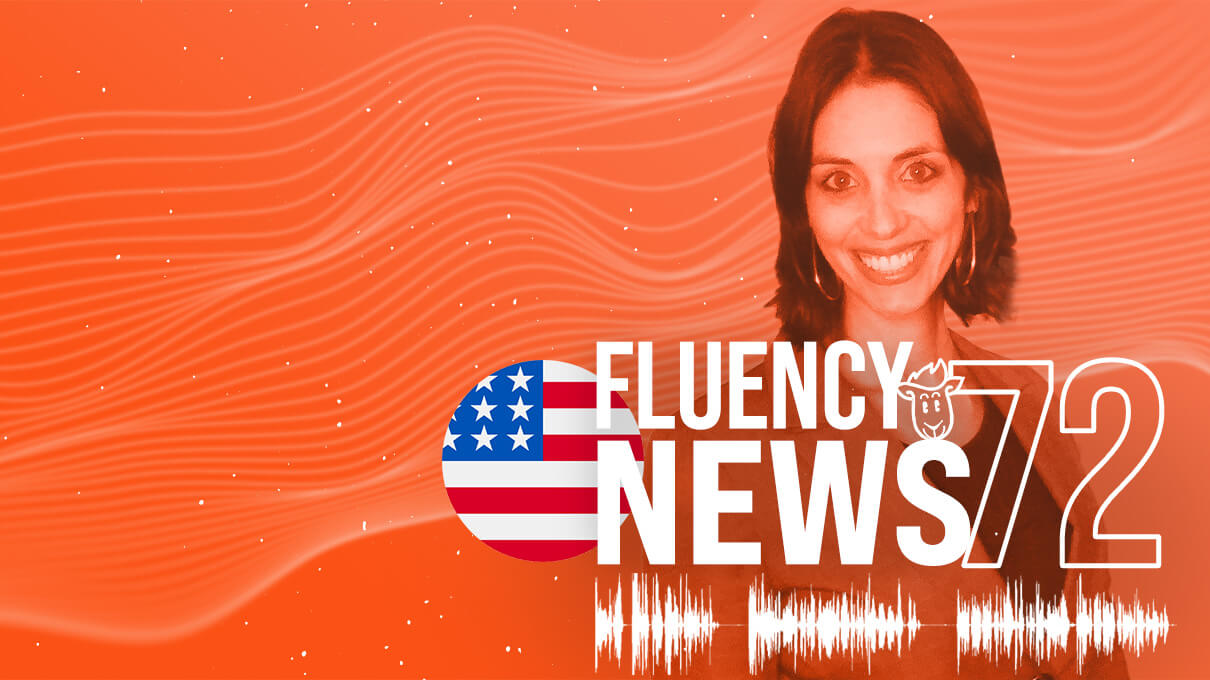


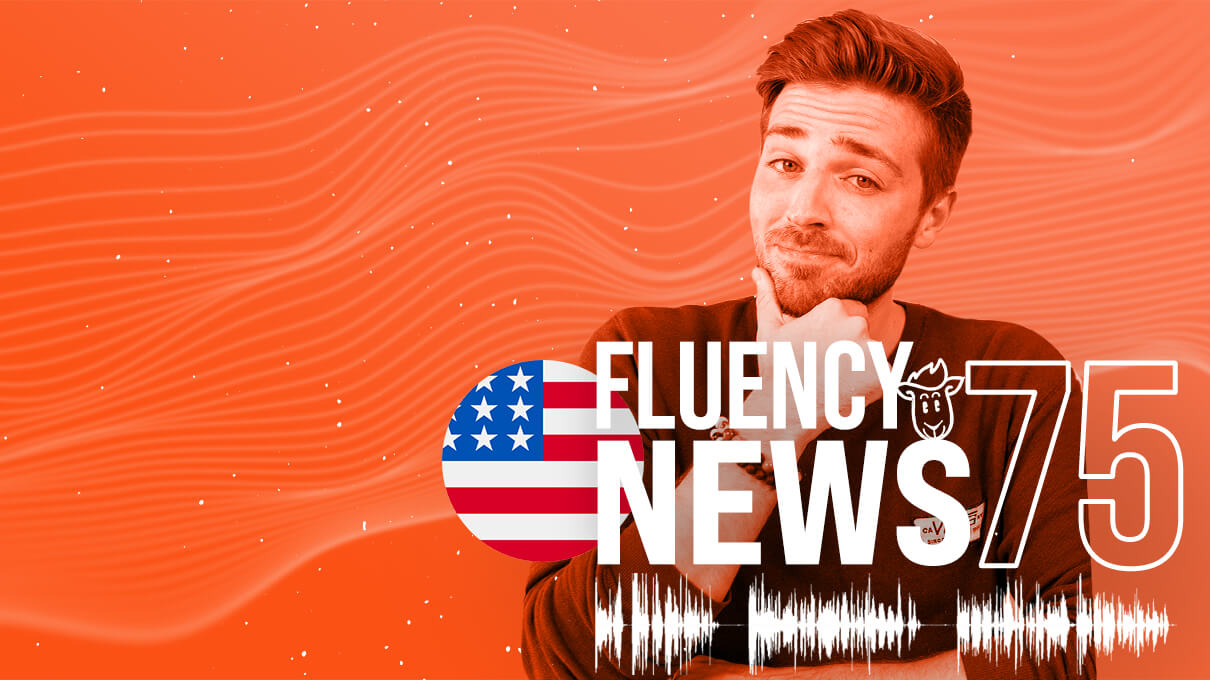

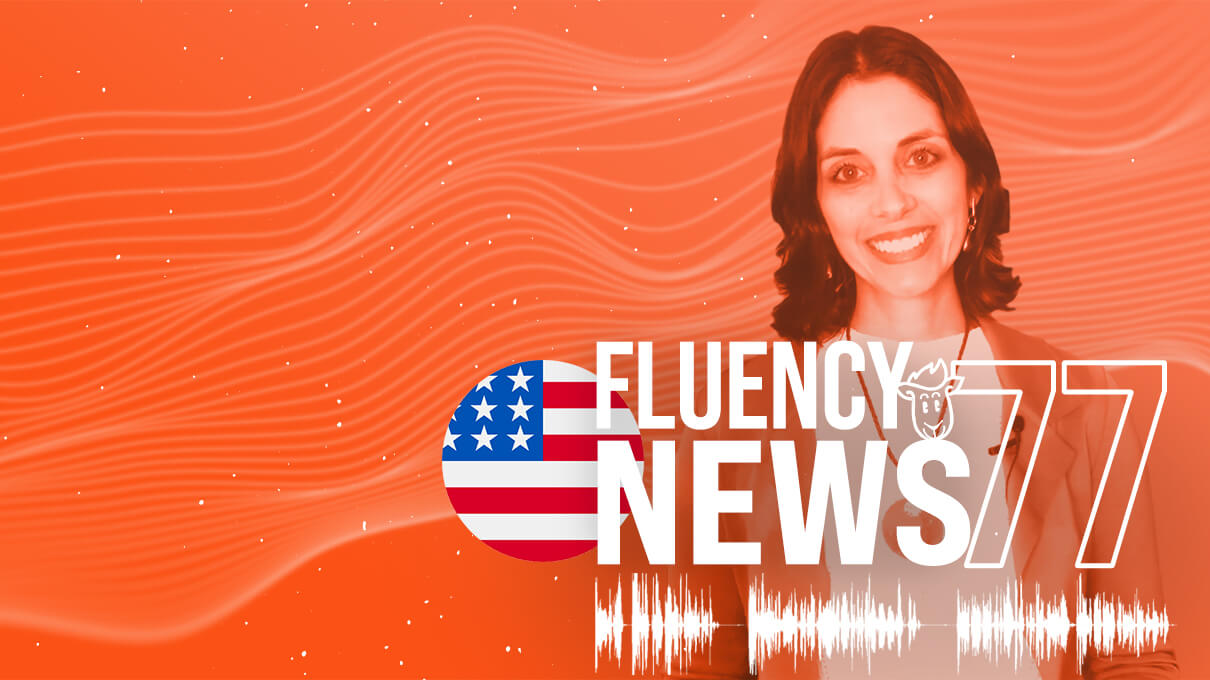


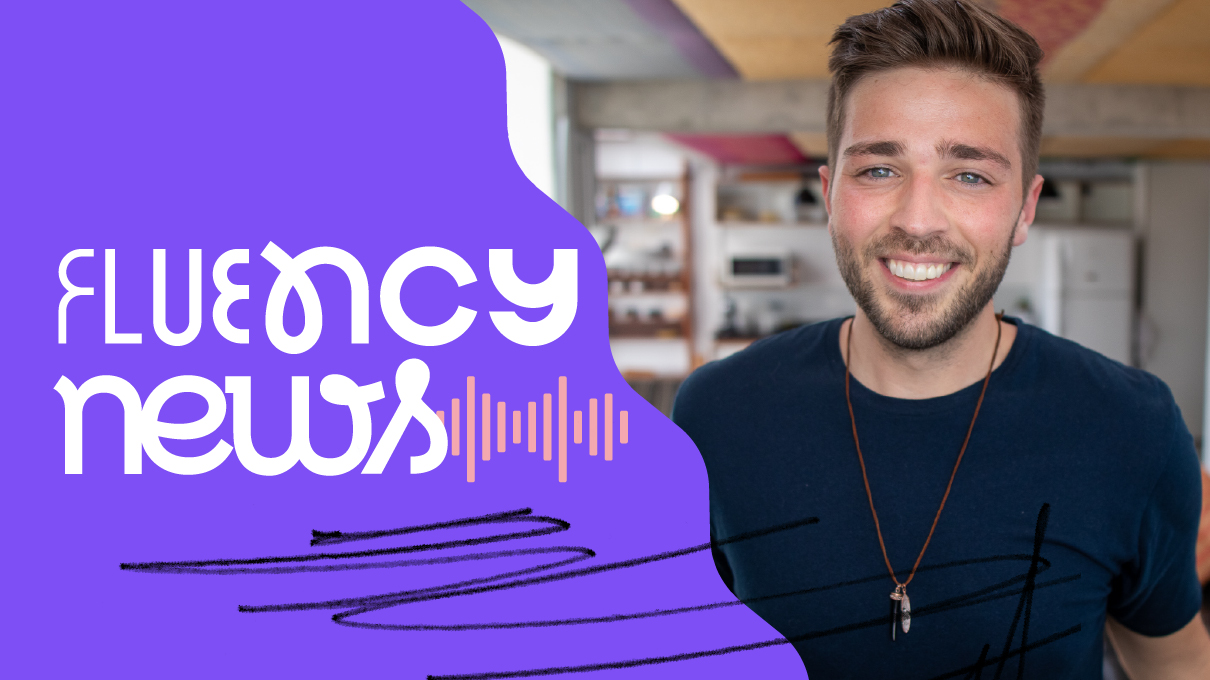

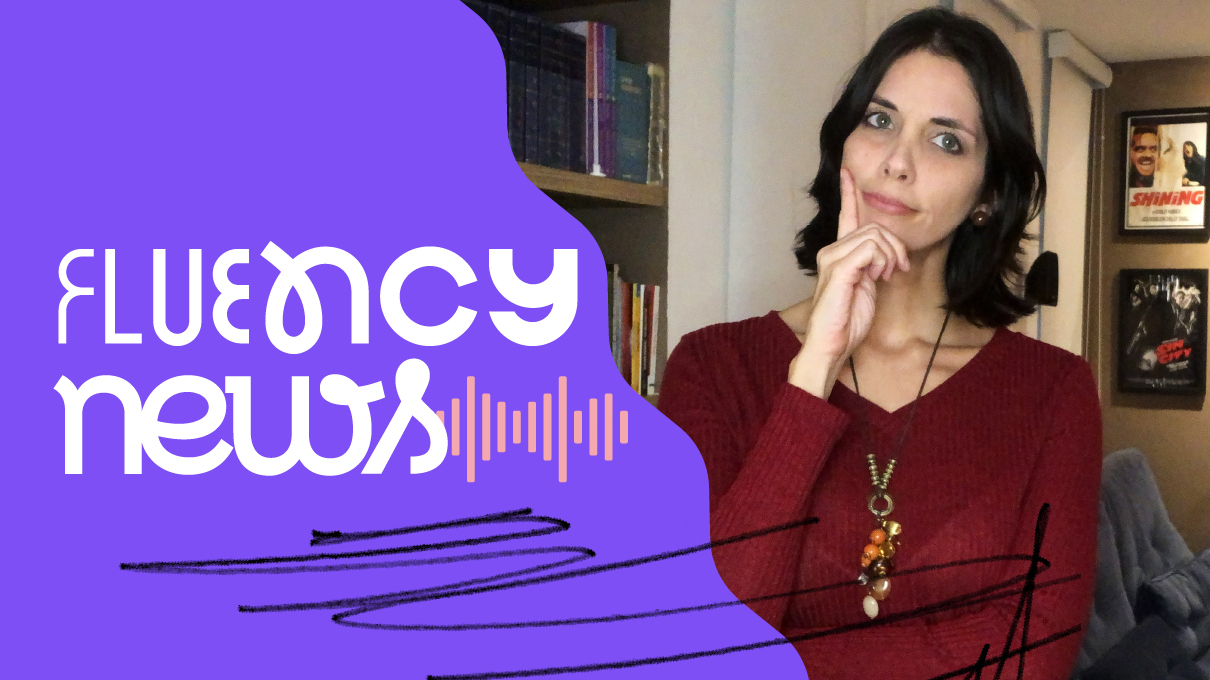


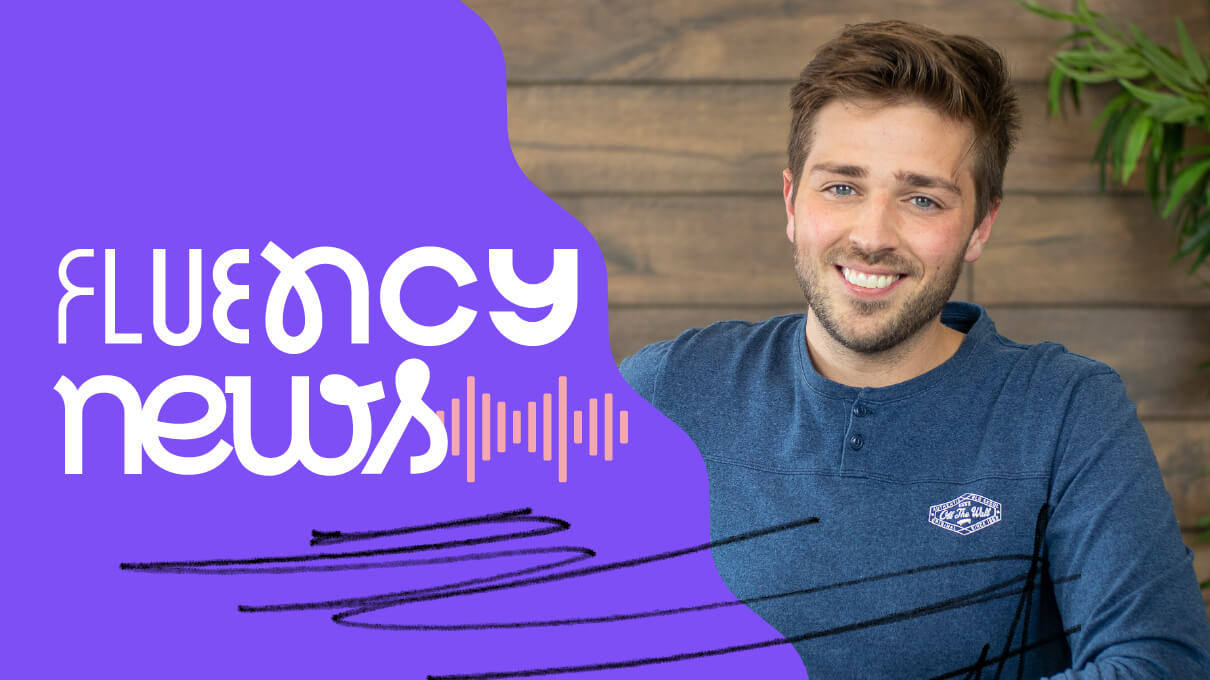


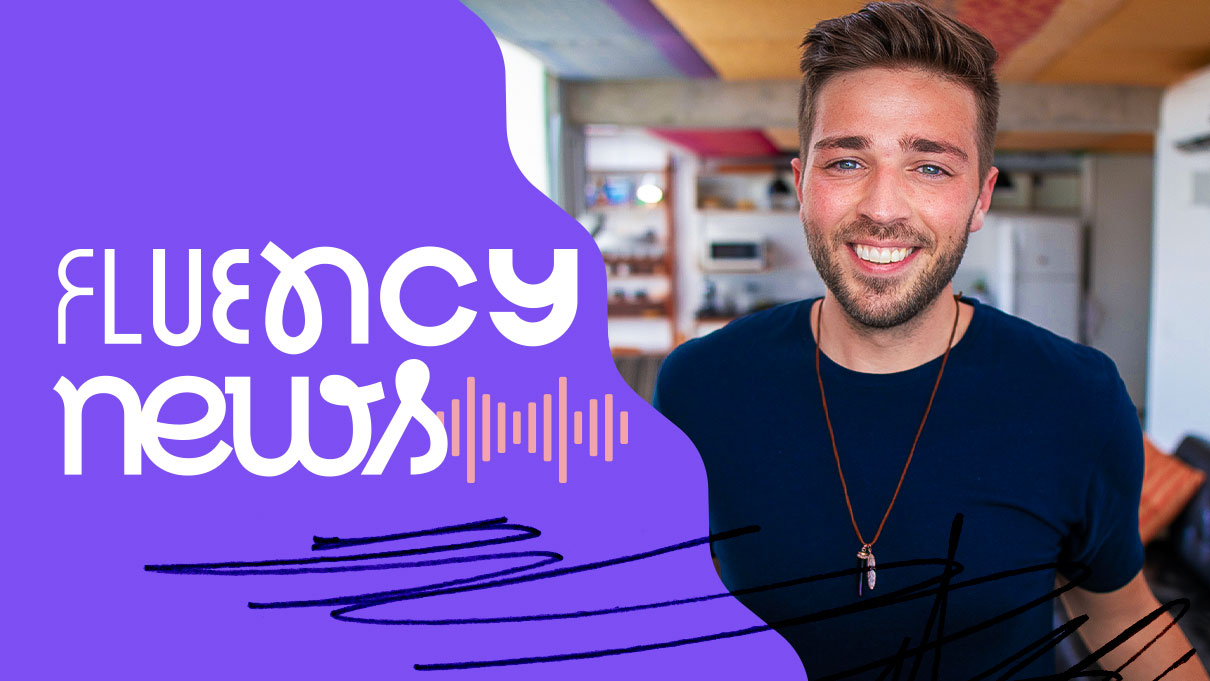




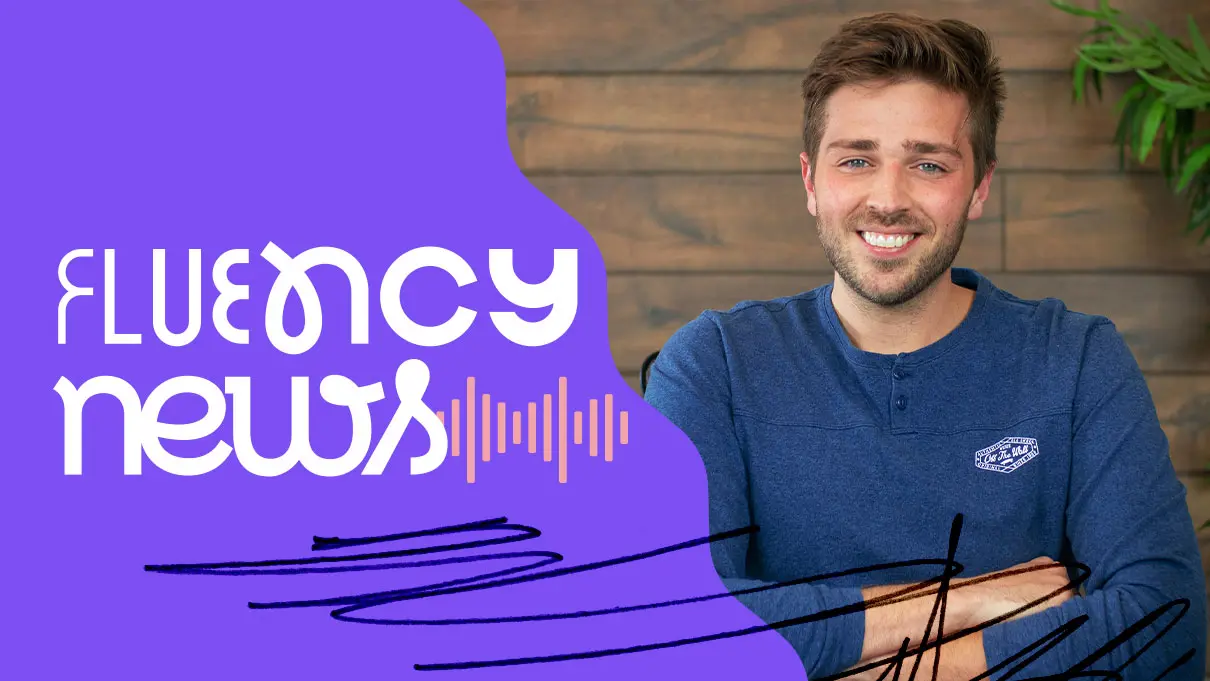



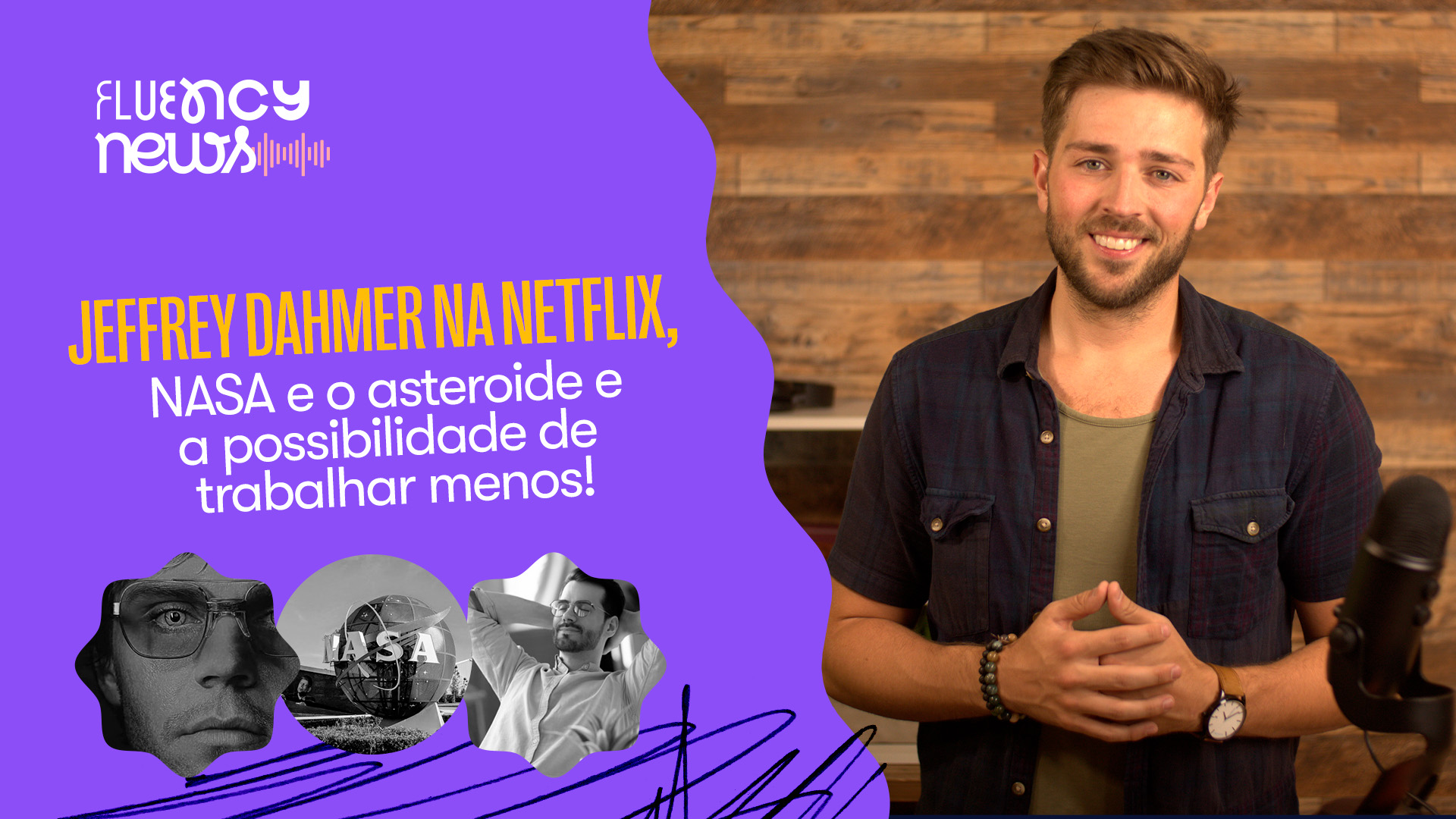

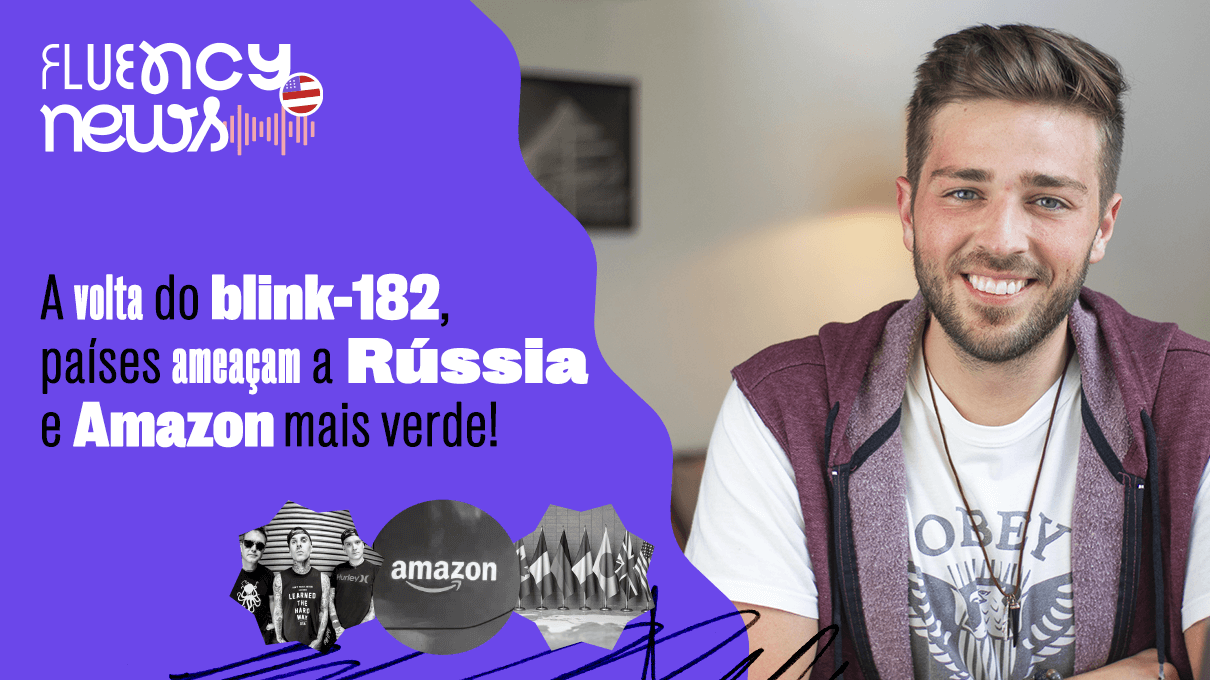
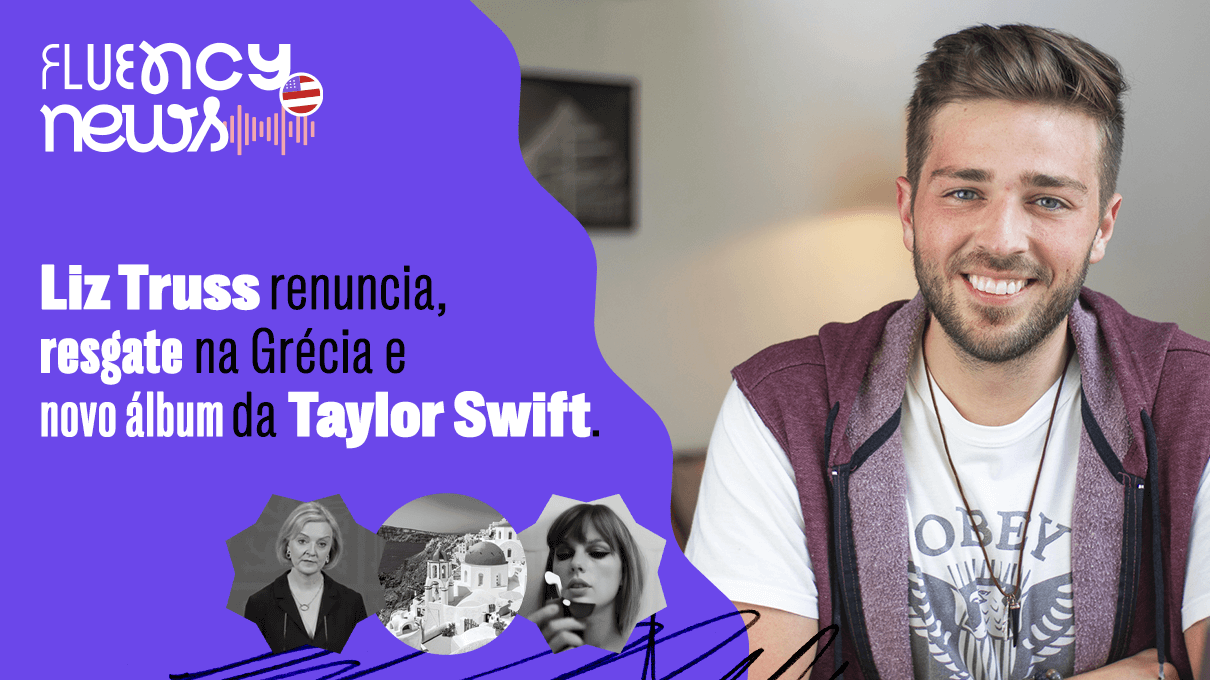
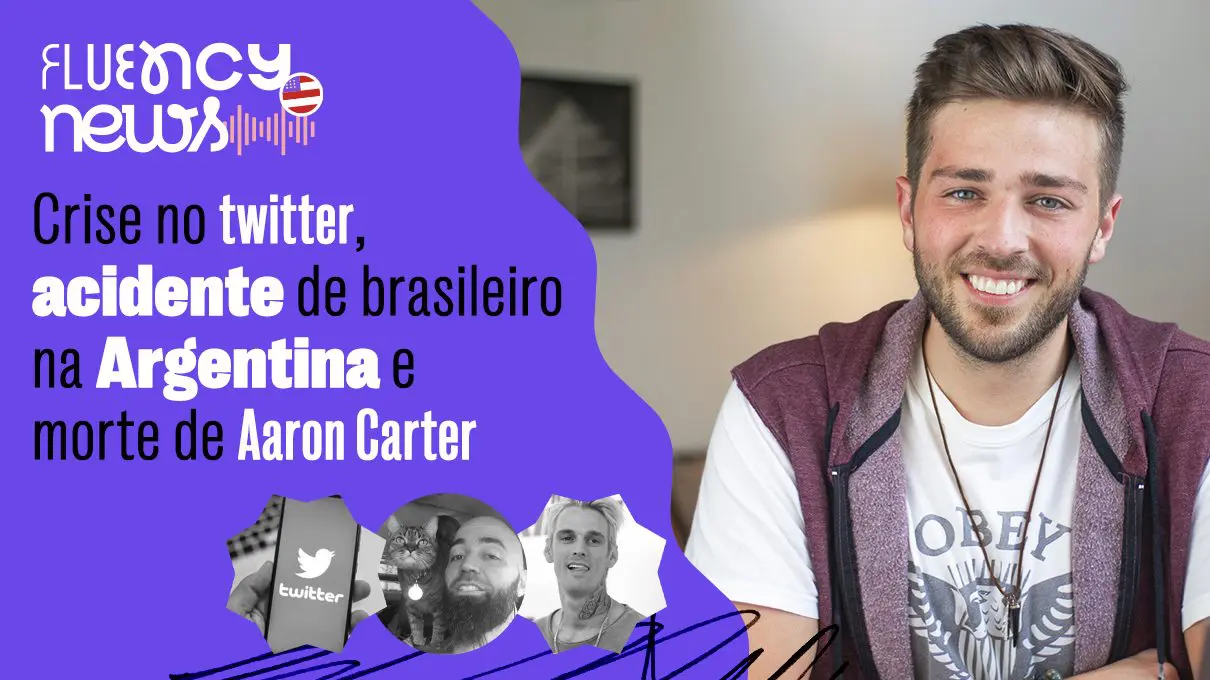
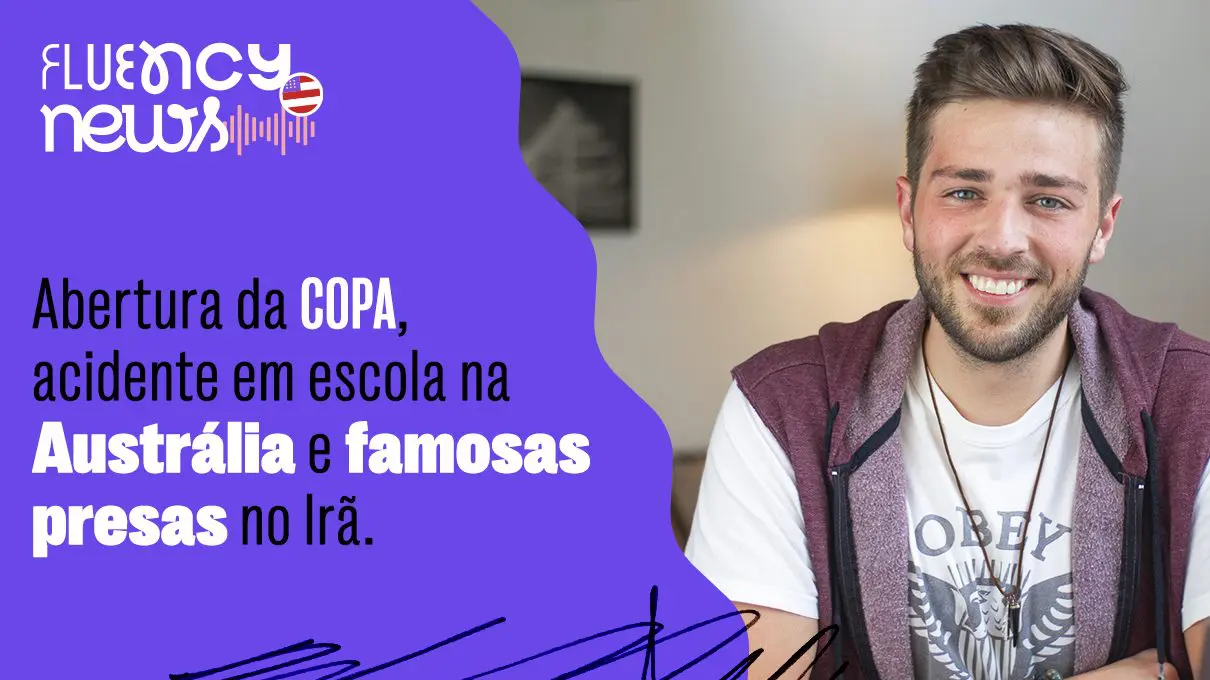








 Blog
Blog  Podcast
Podcast  Lives
Lives  Aulas
Aulas  eBooks
eBooks  Minicursos
Minicursos











